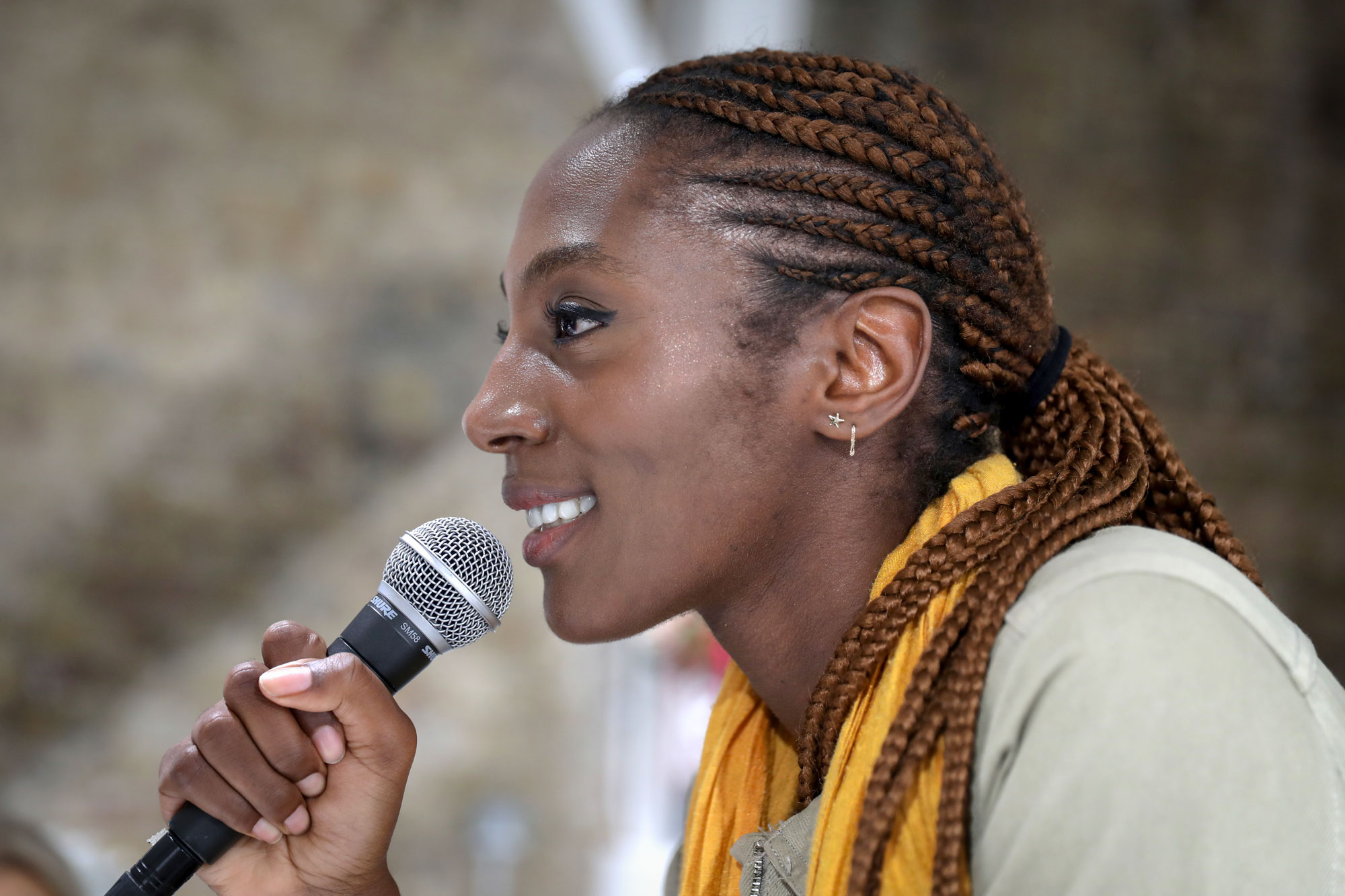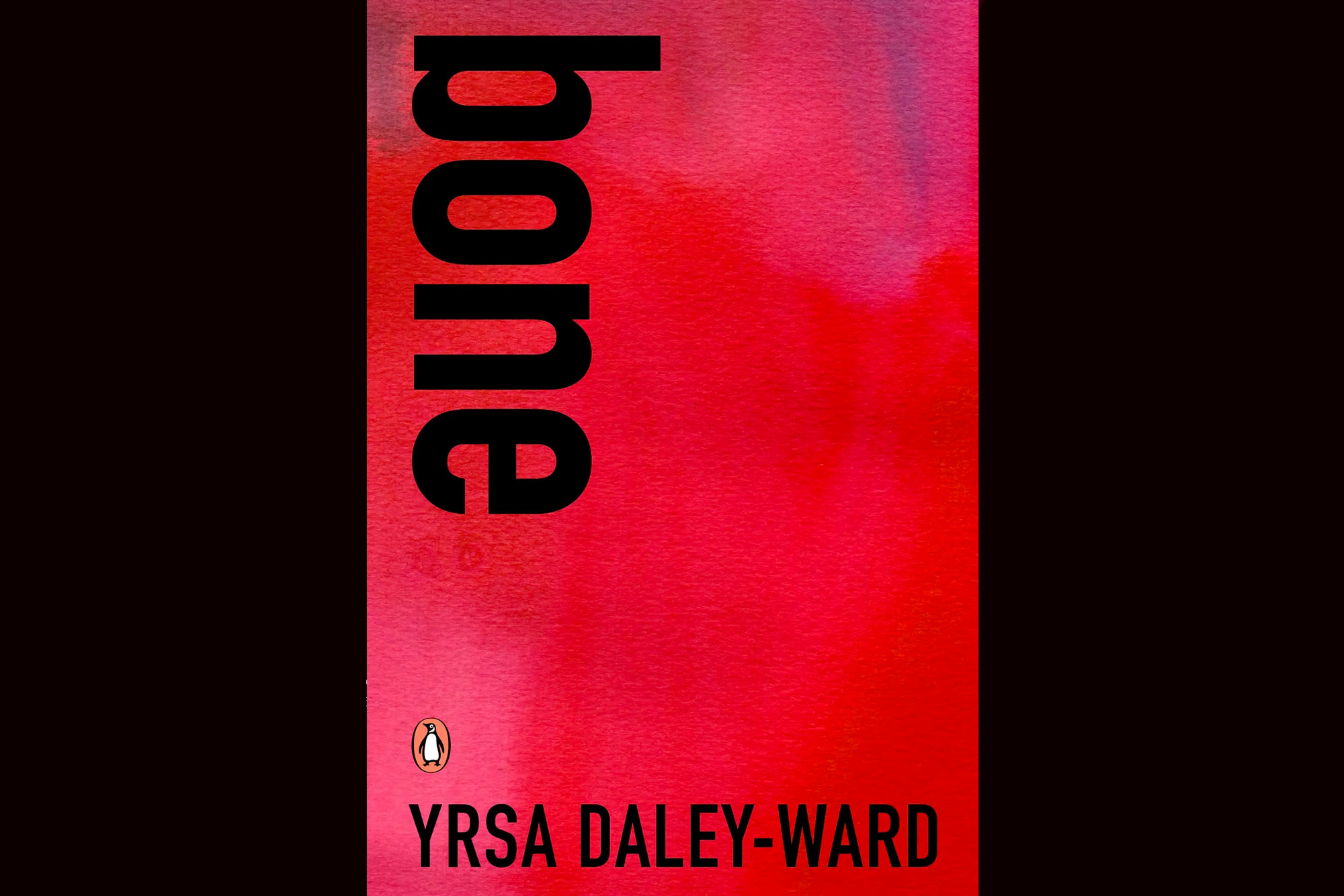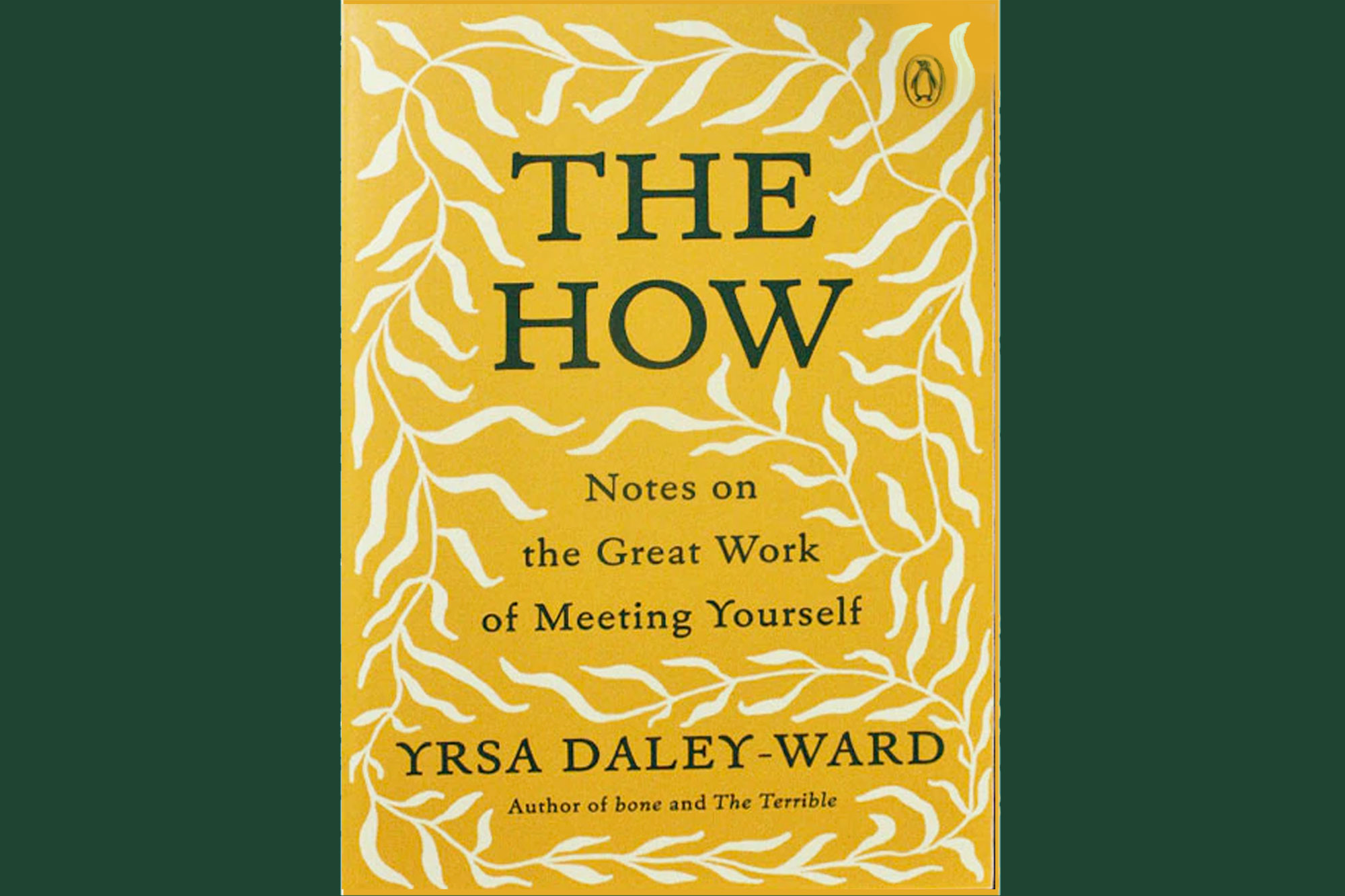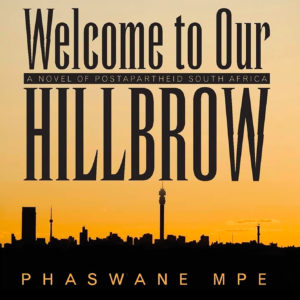Yrsa Daley-Ward harnesses the power of poetry
The British poet found freedom in publishing her work on social media, leading to a renewed interest in the literary form and mainstream publishing deals for two collections so far.
Author:
1 February 2022

We are huddled in a friend’s living room on a stormy evening. An impromptu poetry reading is how we decide to busy ourselves rather than cruise the soaked Johannesburg darkness. As my turn approaches, I scramble through the pages of British poet Yrsa Daley-Ward’s Bone, to the rousing Sthandwa Sami (My Beloved, isiZulu). The emotional intelligibility in her words is intimate, inviting and relatable – finger snaps and yesses surge into the room at their reading.
It is these qualities that have contributed to the adulation of the poet. It’s also the strong South African sensibility of Bone – Daley-Ward’s debut collection – that has intensified attachment to the book. The release of The How: Notes on the Great Work of Meeting Yourself followed in December.
“I fell in love in South Africa, multiple times,” Daley-Ward says in a video call. She is immediately forthcoming, opening our conversation with “Ask me anything, I’m here for it”. The poet wrote most of Bone while living in South Africa and what began as poems about how she felt eventually turned into a book.

South Africa is not only a place where love kept finding her, but also where she experienced an unexpected artistic invigoration. “It’s also where I found a voice in terms of going out and performing. I performed in Johannesburg and I loved it. I performed in Cape Town [in Observatory] a lot. That was an awakening,” she says.
Even though some poems in Bone cover the grim themes of loss, heartbreak and mental health, the artistic affirmation the poet felt while writing the collection is palpable. It is a feeling that transfers to the reader, as comfort in the knowledge that you are not alone with your feelings and experiences.
Slow start
Daley-Ward’s acclaim was slow in coming. She self-published Bone in 2014 before Penguin reissued it in 2017, as a result of her following on social media.
It would not be amiss to consider Daley-Ward the original Instagram poet – well, she and Nayyirah Waheed, maybe – after her initial work on microblogging site Tumblr. Posting a treatise on social media can have a profound impact and Daley-Ward tapped into this conduit for collective and uncensored expression, in multiple directions and across politics, to express herself.
“No publishing houses were looking at what we were doing. We did our own thing because no one would publish our work,” she says.
Related article:
The freedom of self-publishing led to a renewed interest in poetry, which was accessible for new audiences in dynamic ways – and without some of the structural impediments of the publishing industry. The work was raw and impactful. Daley-Ward and peers such as Warsan Shire and Tapiwa Mugabe introduced alternatives to the traditional publishing model, proving the validity of Black stories and redefining what a poem is – the latter being subject to much critique.
“People that look like us were from the continent [mainland Europe] or were second-generation,” she says, and looking to succinctly express this “feeling with a few words … It infused meaning into social feeds.” With lines such as “You have to understand, that no one puts their children in a boat unless the water is safer than the land” by Shire, diasporic realities of identity, displacement and language finally had a space, one that returned creative control to the writer.
The influence of this work can be seen in the proliferation of Insta poets. “What we call poetry has changed,” says Daley-Ward. “I am down for as much diversity as possible, whatever we think can be actual work. I am happy it’s there. It meets people where they are.”
Along for the journey
Her new book is a change in direction. The How: Notes on the Great Work of Meeting Yourself is Daley-Ward’s entry into the realm of personal development or self-help. This is a genre that can be prescriptive, but while The How falls under this classification it delightfully does not read in a formulaic way.
Instead, Daley-Ward meditates on questions of self, fulfilment and authenticity while staying loyal to her signature mix of lyrical prose and captivating poetry. She journeys through ruminative questions in an inviting and conversational way, with the reader as a collaborator on the journey.

“I can’t be prescriptive because I’m just experiencing everything as well along with whoever is reading it. I don’t know any more than anybody else, certainly. I guess the book is a compilation of the things that have worked for me, and the things I’m still working on. None of these things are solved.”
She conjures a sense of discovery throughout the book by blending writing styles. Some sentences are all in capital letters, others don’t end, all of which leads the reader back to themselves. The book rests on the idea of diving inward, strengthening and nourishing the self before one can meaningfully change their life.
“We can be too insular. We can be too self-involved. I’m not talking about that in the book. I’m talking about attention to the self. A deep care for the self in a radical way, because often we’re trying to do so many things” and not address ourselves, she says. “I think I’ve had the most success with anything outside of myself when I, myself, am at peace.”
Writing in a pandemic
The How echoes the reflective sentiment that the Covid-19 pandemic forced on all of us, cooped up in our houses with nowhere to go but into ourselves. This reckoning with the self is what the book aims to help guide people through.
“I didn’t mean to write this book,” says Daley-Ward. “It was the pandemic and this lockdown. I spent a lot of the pandemic on my own and you are forced into this state of yourself, where you are like, well?
“There’s something beautiful about writing from the sidelines. Everything shutting down had a profound effect on me, especially when it’s cold. People think of writers as people who shut off, but the other side is that you want connection.”
The long periods of isolation and inactivity were difficult for the poet, despite being a self-proclaimed introvert. Even though she considers herself more of an observer, she ached for many things from the pre-Covid world, including the nourishing value of touch. “Touch is as important. Like magnesium, iron, or whatever, levels in your body. If it keeps preemie [premature] babies alive, that’s saying something for the human.”
Related article:
She imbued The How with this yearning and in this way, it morphs into creating community in yourself, for yourself. It explains the comforting incompleteness of the book, because there is no resolution when it ends but it somehow feels as though it endures elsewhere after the last page, ostensibly in the life of the reader. This calcifies Daley-Ward’s idea that self-discovery is unending and gives grace to change. “By the time I was on the last page of the book, I could have written it again and written it totally differently,” she says.
The poet is already caught up in other projects and hints that they are works in which she engages the written word in ways we have yet to see her do. “I want to do everything,” she says. Most recently, she provided the words for Beyonce’s project Black Is King. She welcomes any kind of engagement with her work and doesn’t mind the criticism of this film, viewing responses as valid and the point of creative work being to ignite feeling. When she writes, she says, “you have to be a clear vessel for whatever is running through you. If you identify too much with the outcome of what people will say, then that probably starts to taint the process.”
In this urge to do “everything”, she wants to “find new ways of layering the work, but mostly I just want to go out and connect”, Daley-Ward says in pandemic exasperation. She also wants to travel and aims to return to South Africa “for a while, for at least a season”.


